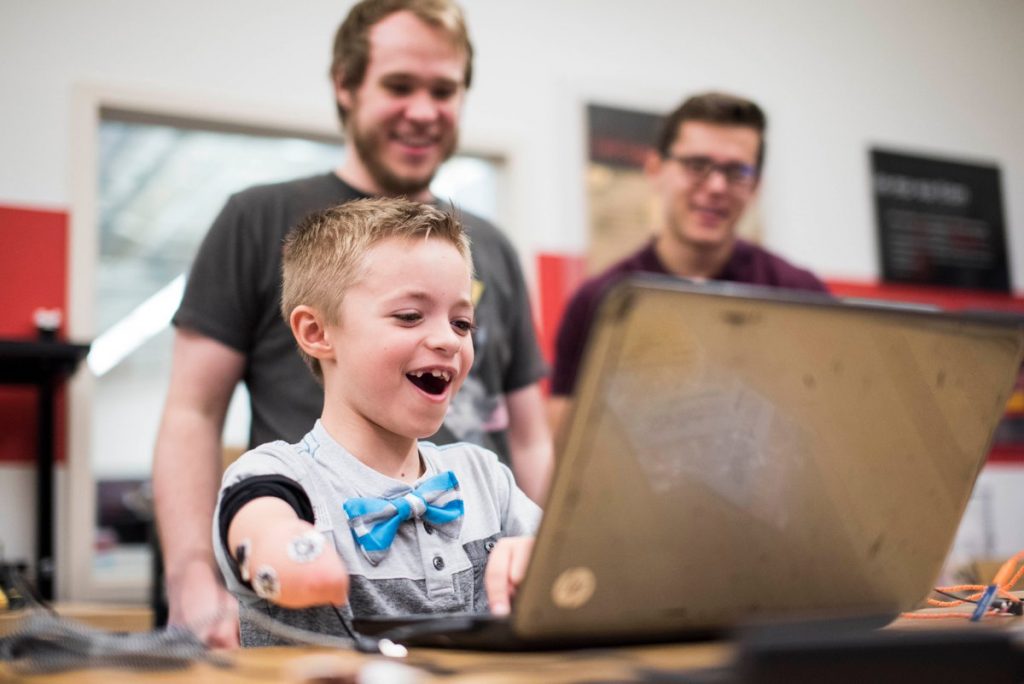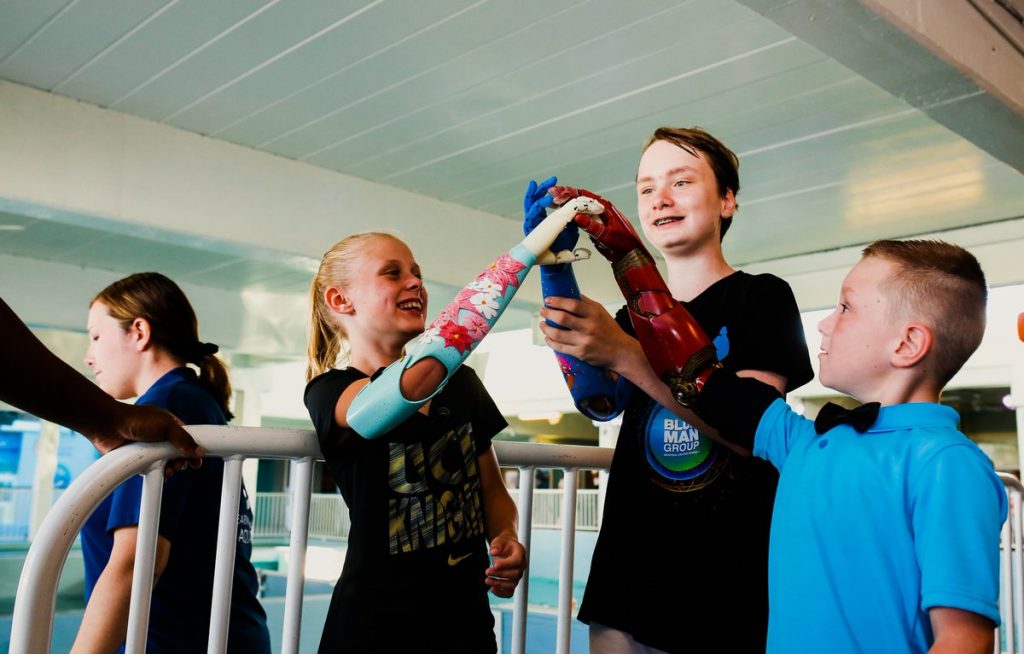This week Oregon Health & Science University (OHSU) and Limbitless Solutions, a nonprofit organization based at the University of Central Florida (UCF), began “the first U.S. clinical trial of bionic arms for children produced on 3D printers.”
A landmark moment for all parties involved, the trials will determine whether Limitbless prosthesis can be certified by the FDA, and covered under insurance.
“Where this goes from here is going to be huge,” comments Albert Chi, the trail’s lead clinical investigator and associate professor of surgery at OHSU.
“It’s my personal aspiration to provide advanced prosthetics to all those in need. Making it affordable and accessible is the goal, and I really do believe 3D printing technology is the solution.”

Helping children to grow
Prosthetic development is one of the leading use cases of 3D printing in healthcare. With the technology, practitioners have succeeded time and again in creating low-cost, custom solutions for a variety of people in need. Volunteer network e-NABLE is one of the leading organizations in this field. With the e-NABLE model, prosthesis designs are available to share and 3D print for free all across the globe.
For children, the need is especially pronounced. Accessibility to a well-fitting, custom-made arm can make a huge difference to a child’s ability to thrive. As children grow so fast, there is also an urgency to develop more cost-effective solutions to keep the devices up to date.
Next-level prosthesis
Limbitless myoelectric arms take artificial arms to the next level. Muscle flexing in the remaining portion of a child’s arm are detected by leads attached to the skin. Impulses generated by these leads then move the bionic arm so as to naturally perform a task.
Produced in the UCF lab, an average Limbitless arm costs around $1,000 to make, up to around one tenth of the cost of other functional prosthesis.
The clinical trial begins
The Limbitless clinical trial will be conducted in a group of 20 children aged between 6 and 17 years of ages. Over the course of the year, as the children are trained to use the arms, the arms will be gauged for their ability to help children perform specailized tasks and the impact they have on quality of life.

Albert Manero, CEO and a co-founder of Limbitless Soltuions concludes, “We hope our work will ultimately allow us to provide prosthetic arms to children at little or no cost,”
“There is a real psychological-social aspect of having an arm they can customize and which reflects their personality. It allows kids to be kids and understand their opportunities are limitless.”
Stay abreast of all the latest medical advances. Subscribe the 3D Printing Industry newsletter, follow us on Twitter and like us on Facebook.
Seeking a new opportunity to get involved in the industry? Sign up to 3D Printing Jobs here.
Featured image shows Limbitless Solutions 3D printed arms. Photo via Limbitless Solutions/Adobe


